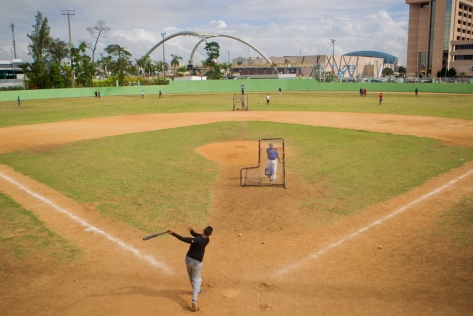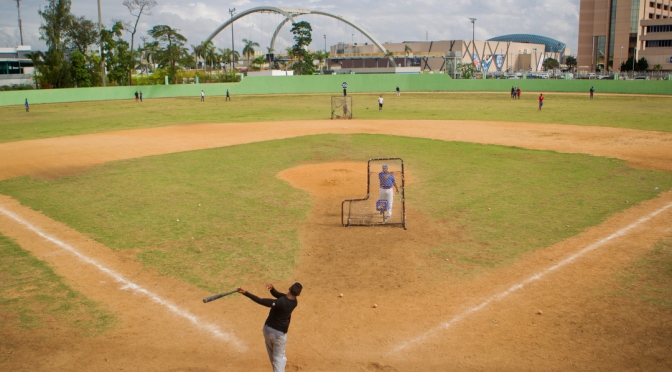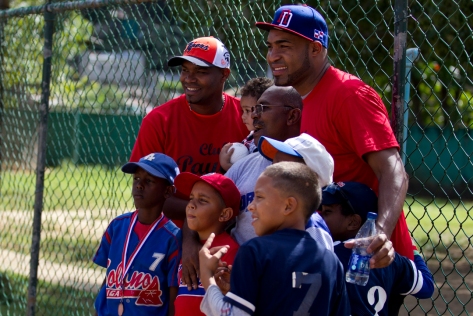Words by Faiz Siddiqui
Photo by Nickolai Hammar
On a sunny afternoon in San Cristobal, a 17-year-old lies unconscious, splayed out across a pitcher’s mound before a crowd of 300. The boy’s name is Jesús Cebollo Ulba, and today was supposed to be the most important day of his life. Though Jesús can’t hear anything, cries for help are muted by the sound of an incoming ambulance.
A few hours earlier, around 8 the morning of his big audition five years ago, a plate of eggs and fried plantains sat on his kitchen table untouched. On the counter beside him was a tall, empty glass he’d pulled from the sink. His mother pleaded with him to eat before his big game that afternoon.
“The food’s getting cold,” she said.
Jesús refused. Too nervous, he said. Didn’t want to upset his stomach.
He had good reason. Today Jesús was to show off his 90 mph cut fastball to scouts from the Minnesota Twins, the Detroit Tigers and elsewhere. If the outing went well, the stocky, buzzcut-wearing pitcher might sign a six-figure contract to play professional baseball, a ticket to a new life in a new country. A ticket to supporting his newborn infant daughter. A ticket to potential MLB stardom.
He’d been known to throw wild pitches before, but today, of all days, Jesús couldn’t screw up. Neglecting breakfast, he reached into the cabinet and retrieved a jar of chocolate-flavored protein that had been mailed to his mother from a friend in the United States. He spooned the recommended dose of powder into the glass until it was a third of the way full, mixing the protein with water. He’d need the energy.
So he chugged another shake. And another. And another.
He’d never drunk so much before. And when he finally made it to the baseball field, he says, he felt great.
The feeling followed him to the mound, where in his sixth inning debut, he struck out two of three batters. Already, Jesús had begun imagining himself under the Fenway Park lights, relieving his favorite pitcher, Boston Red Sox ace Pedro Martinez. This was his chance, and he was nailing it.
Until he sat down in the dugout to rest. Then, Jesús says, he began noticing something was off. His vision became blurry and he started feeling dizzy. His heart was beating faster than usual.
Jesús took the mound in the seventh anyway. He threw six more strikes, retiring two batters in a row. Then, he cocked and released, watching a fastball fly higher than the catcher could reach. The pitch bounced off the backstop. To gasps from the scouts and coaches in attendance, he threw a second wild pitch in a row. And a third. When his heart started beating faster than the pitches he was throwing, Jesús knew something was wrong.
A minute later he just laid silent on the ground. His teammates rushed over from the dugout.
In that five-minute span, any hopes Jesús had of making it professionally were crushed. Scouts didn’t give 17-year-olds second chances. Especially when they needed months to recover from the jolt. Especially when they were Dominican.
Jesús knew as much the second he woke up in a hospital bed, nauseated and confused with a tube stuck in his arm, as far from Fenway as ever.


